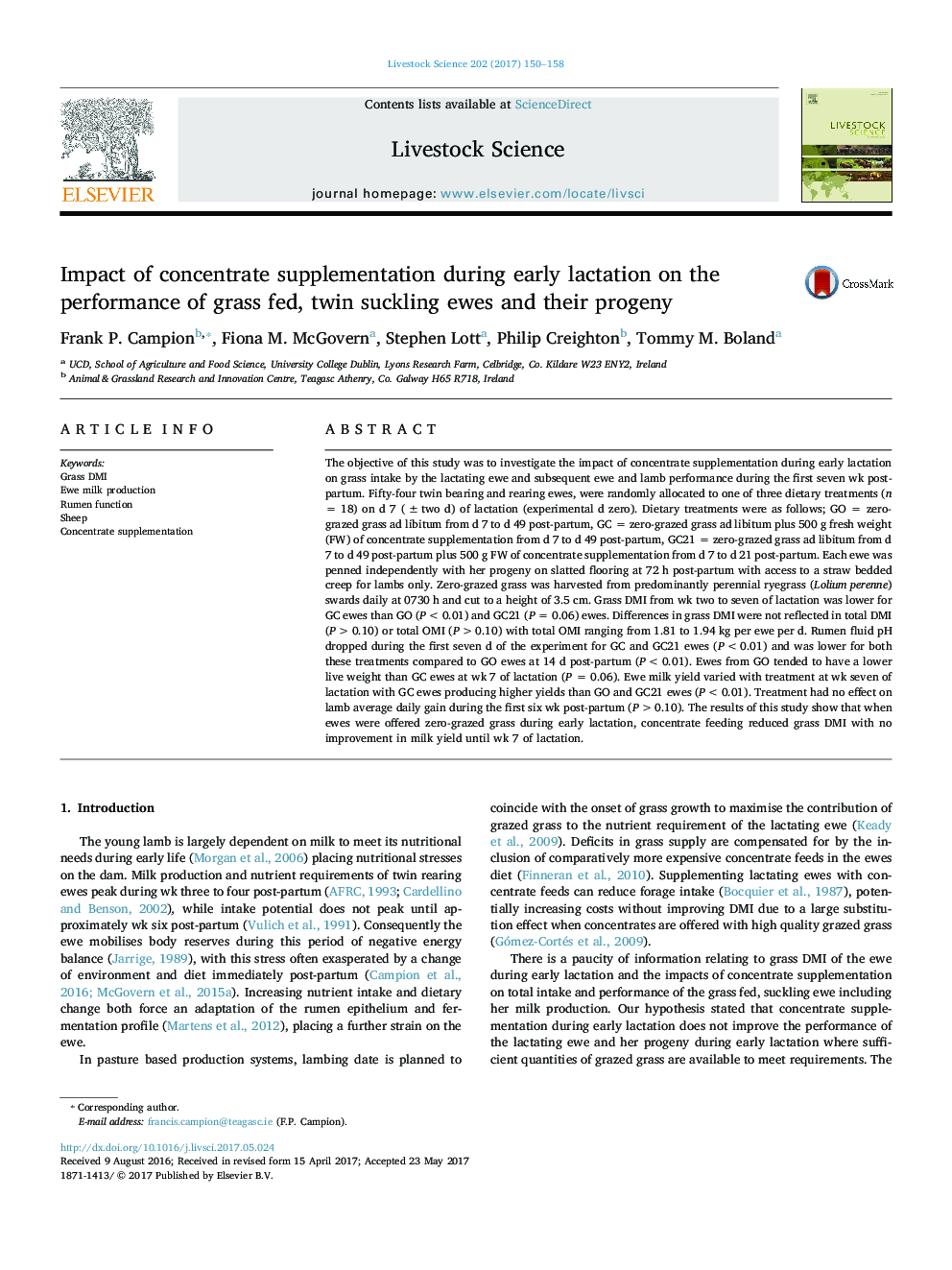| Article ID | Journal | Published Year | Pages | File Type |
|---|---|---|---|---|
| 5543099 | Livestock Science | 2017 | 9 Pages |
Abstract
The objective of this study was to investigate the impact of concentrate supplementation during early lactation on grass intake by the lactating ewe and subsequent ewe and lamb performance during the first seven wk post-partum. Fifty-four twin bearing and rearing ewes, were randomly allocated to one of three dietary treatments (n = 18) on d 7 (± two d) of lactation (experimental d zero). Dietary treatments were as follows; GO = zero-grazed grass ad libitum from d 7 to d 49 post-partum, GC = zero-grazed grass ad libitum plus 500 g fresh weight (FW) of concentrate supplementation from d 7 to d 49 post-partum, GC21 = zero-grazed grass ad libitum from d 7 to d 49 post-partum plus 500 g FW of concentrate supplementation from d 7 to d 21 post-partum. Each ewe was penned independently with her progeny on slatted flooring at 72 h post-partum with access to a straw bedded creep for lambs only. Zero-grazed grass was harvested from predominantly perennial ryegrass (Lolium perenne) swards daily at 0730 h and cut to a height of 3.5 cm. Grass DMI from wk two to seven of lactation was lower for GC ewes than GO (P < 0.01) and GC21 (P = 0.06) ewes. Differences in grass DMI were not reflected in total DMI (P > 0.10) or total OMI (P > 0.10) with total OMI ranging from 1.81 to 1.94 kg per ewe per d. Rumen fluid pH dropped during the first seven d of the experiment for GC and GC21 ewes (P < 0.01) and was lower for both these treatments compared to GO ewes at 14 d post-partum (P < 0.01). Ewes from GO tended to have a lower live weight than GC ewes at wk 7 of lactation (P = 0.06). Ewe milk yield varied with treatment at wk seven of lactation with GC ewes producing higher yields than GO and GC21 ewes (P < 0.01). Treatment had no effect on lamb average daily gain during the first six wk post-partum (P > 0.10). The results of this study show that when ewes were offered zero-grazed grass during early lactation, concentrate feeding reduced grass DMI with no improvement in milk yield until wk 7 of lactation.
Related Topics
Life Sciences
Agricultural and Biological Sciences
Animal Science and Zoology
Authors
Frank P. Campion, Fiona M. McGovern, Stephen Lott, Philip Creighton, Tommy M. Boland,
